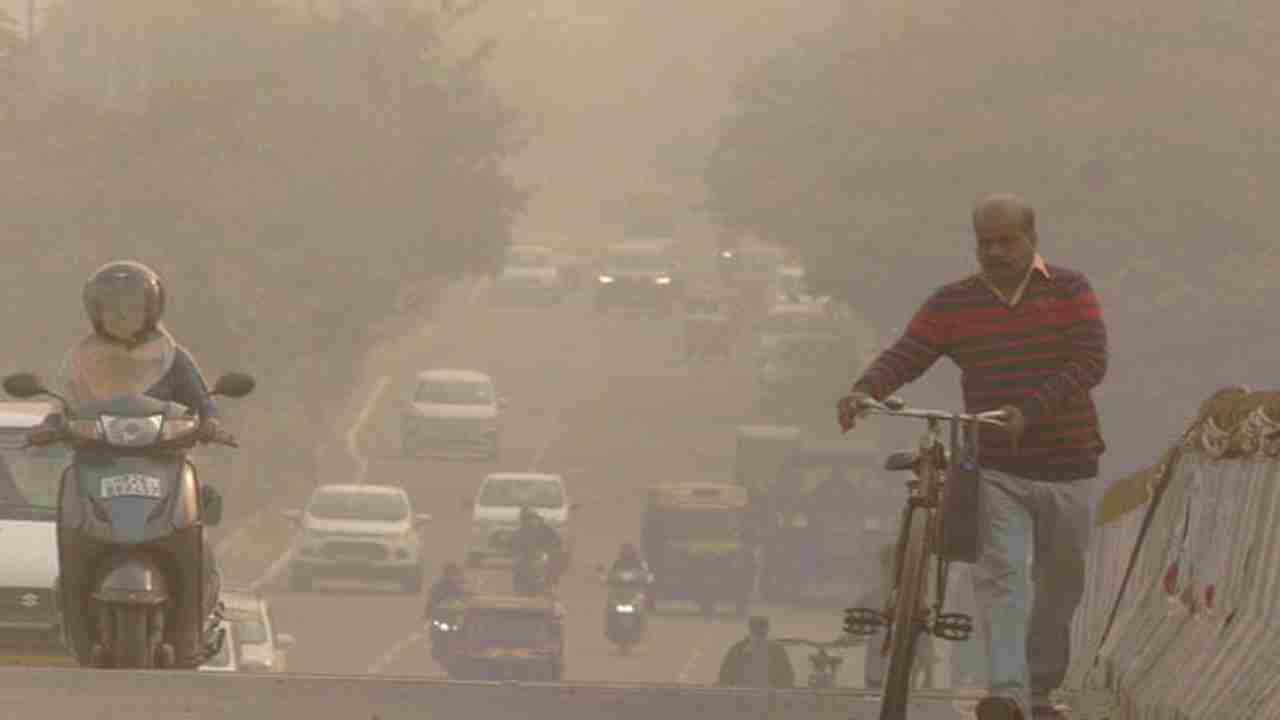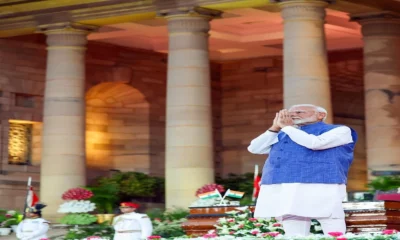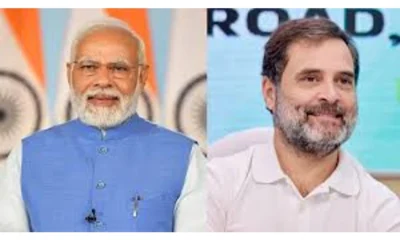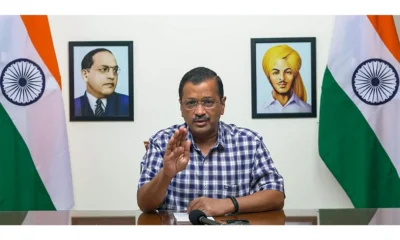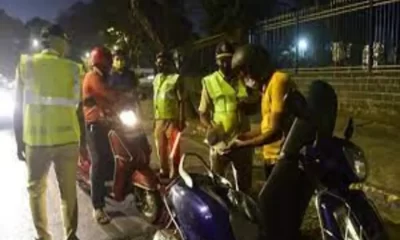[vc_row][vc_column][vc_column_text]Amid the precarious air pollution situation in Delhi and several other parts of the country and Diwali approaching, the Supreme Court today (Tuesday, October 23) laid down restrictions to be followed for bursting of crackers applicable across the board for all festivals.
However, to the relief of citizens, the top court declined to issue a blanket, country-wide ban on fireworks.
A Supreme Court bench of Justices AK Sikri and Ashok Bhushan was hearing a bunch of petitions – including one filed by minors Arjun Gopal, Aarav Bhandari and Zoya Rao Bhasin (all aged below four years) through senior advocate Gopal Sankaranarayanan – which had sought a complete ban on the manufacturing, transportation and sale of fire crackers.
The court clarified that on festivals, including Diwali, the bursting of firecrackers will be allowed only between 8 pm and 10 pm. On Christmas and New Year’s Eve, the bench said, crackers can be burst between 11:45 pm and 12:45 am.
“We make it clear that we are concerned not only with Diwali… be it Gurpurab or Christmas, our directions will work across the board,” said Justice Sikri.
No fire crackers would be burst during the day, said the SC.
The SC said “improved and green” crackers can be manufactured and sold only by the licensed holders. The court imposed a complete ban on the sale of firecrackers by e-commerce firms, including Amazon and Flipkart.
It added that firecrackers will also have to comply with the prescribed noise levels and also barred the use of some chemicals, including barium salt, in the manufacturing.
The SC ordered the Petroleum and Explosives Safety Organisation (PESO) to give clearances to crackers only if they meet noise and emission standards. The court order made it clear that the existing stock of crackers would become redundant.
The court added that the Centre and state governments should promote community bursting of firecrackers by designating such spots.
In the national capital, the Supreme Court said the Aam Aadmi Party government should look into the possibility of community fireworks to reduce the pollution load. If the government goes for this, the judges said this should be done within the next week so that people do not end up buying firecrackers.
Local police officers shall be personally liable if there is a violation of the court orders and will be hauled up for contempt.[/vc_column_text][/vc_column][/vc_row][vc_row][vc_column][vc_column_text css=”.vc_custom_1540286805313{border-top-width: 10px !important;border-right-width: 10px !important;border-bottom-width: 10px !important;border-left-width: 10px !important;padding-top: 10px !important;padding-right: 10px !important;padding-bottom: 10px !important;padding-left: 10px !important;background-color: #e5e5e5 !important;border-radius: 10px !important;}”]Main points
* People can burst low-emission firecrackers for 2 hours on Diwali (8pm to 10 pm), 35 minutes on Christmas and New Year’s eve (11.55 pm to 12.30 am).
* The top court asks Centre to encourage community cracker-bursting during Diwali and other festivals in Delhi-NCR.
* SC bans the online sale of firecrackers and puts a stay on the e-commerce portals from selling firecrackers.
* The top court asks the Central Pollution Control Board to monitor air quality 7 days before and 7 days after Diwali.
* Firecrackers can be sold only through licence holders.
* The area Station house officers will be held accountable if banned firecrackers are sold in their area.
* PESSO (Petroleum and Explosives Safety Organization) asked review the clinical composition of fireworks and give the suggestion within two weeks.
* The court ruling shall apply to all festivals and marriages.[/vc_column_text][/vc_column][/vc_row][vc_row][vc_column][vc_column_text]The judge said that this judgment has tried to strike a balance and has relied majorly on the suggestions and guidelines proposed by the central government.
The bench had reserved its verdict on the PILs on August 28 following elaborate arguments which saw Chairman, Centre for Chest Surgery & Lung Transplantation, Sir Ganga Ram Hospital and chief of Lung Foundation Dr Arvind Kumar make a passionate appeal before the judges in favour of banning fire crackers completely. Dr Kumar had placed on record graphic images of lungs of his patients, and explained to the court how, “everyone had turned a smoker” because of the high level of air pollution. He had established that the spike in air pollutants during Diwali, primarily due to bursting of fire crackers, could turn fatal for people with lung conditions.
Standing counsel for the Central Pollution Control Board, Supreme Court advocate Vijay Panjwani, who had supported the appeal for a complete ban on fire crackers during the court proceedings told reporters after the apex court’s verdict that though the “order is not very strict, it will regulate the sale and use of crackers to some extent”.
“All state pollution control boards and the Central Pollution Control Board will measure particulate matters (PM) 2.5 and 10 in the air seven days ahead of Diwali and seven days after Diwali,” Panjwani said.
Last year the top court had imposed a complete ban on sale of firecrackers in the national capital region and today’s decision brings relief for many Delhites wanting to celebrate Diwali the way have been accustomes to.
For the rest of the country, it will be the first time that the festival of lights would be celebrated under strict restrictions.
The top court had earlier said all aspects, including the fundamental right of livelihood of firecracker manufacturers and the right to health of over 1.3 billion people in the country, needs to be taken into account while considering a plea for the ban.
It had asked the Centre to suggest measures to be taken to curb the pollution and the effect of firecrackers on the public at large.
Manufacturers earlier told the court that the use of firecrackers should not be completely banned and it should instead be strictly regulated. They said firecrackers are not the reason for the increase in air pollution and there are other factors, like wind and temperature, which contribute to it.
India’s poor air quality causes over one million premature deaths every year, according to a joint report by two US-based health research institutes earlier this year. Delhi’s Air Quality Index (AQI) continued to be ‘very poor’ on Monday with an average reading of 318 of PM (particulate matter) 2.5 at 9 am, according to data of System of Air Quality and Weather Forecasting And Research (SAFAR).
Last October, the Supreme Court suspended the sale of firecrackers in Delhi-NCR till November 1 in the run up to Diwali which was celebrated on October 19 in 2017. But the use of firecrackers in the city was still rampant on Diwali day, according to an analysis of CPCB data by the Centre for Science and Environment (CSE).
The average PM2.5 concentration during Diwali and the morning after (12pm-12am, October 19-20) was 397 microgramme per cubic metre — 6.6 times higher than the safe limit and is in the ‘emergency’ zone. The day before Diwali (October 18), the 24-hour average was 184 microgramme per cubic metres.[/vc_column_text][/vc_column][/vc_row]


 Latest world news14 hours ago
Latest world news14 hours ago
 Latest world news14 hours ago
Latest world news14 hours ago
 Latest world news14 hours ago
Latest world news14 hours ago
 India News14 hours ago
India News14 hours ago
 India News5 hours ago
India News5 hours ago
 Latest world news5 hours ago
Latest world news5 hours ago
